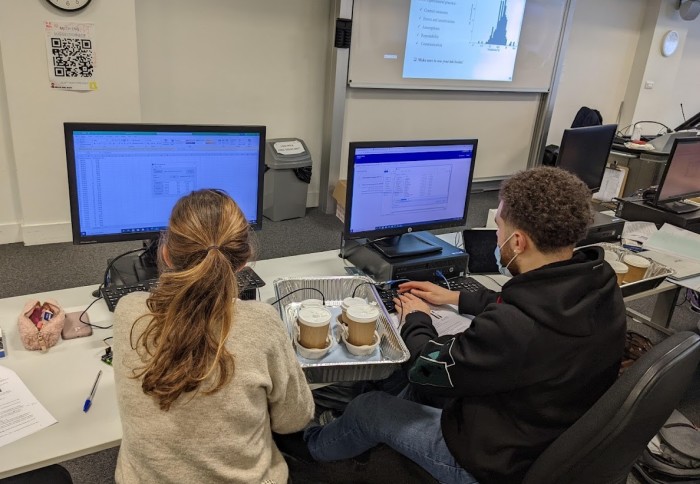Teaching experiments help students “think like an engineer”

Dr Peter Johnson talks about students coming back to in-person teaching and performing experiments.
“In early February 2022, second year mechanical engineering students performed experiments to study transient heat transfer. They used cups of hot and cold water to characterise the response of a temperature probe. Each student had their own kit, but now that lockdown is over they were able to collaborate, leading not just to more learning but to a good atmosphere in the room that we all enjoyed.
The probe that students investigated takes time to respond to changes in temperature. Students were required to characterise this response in the context of two applications in the Combined Heat and Power (CHP) plant, to help determine whether the probe could be used – i.e. does it respond fast enough? This real application helps students think as an engineer and find practical solutions.
This was an ‘inquiry’ based session that encouraged students to determine their own path and make their own decisions. The inquiry approach can be uncomfortable and challenging, but it is closer to the experience of a professional engineer and helps foster the independence we want our graduates to develop.
The probe is complex because it contains different parts made from different materials and whose geometry is not simple. It’s difficult to fully model this probe in detail, so students tried using a ‘lumped capacitance’ model which groups all of the thermal characteristics of the probe into one parameter. This approach provides a relatively simple mathematical model that is useful for engineers.
Students derived their own mathematical model and used their measurements to verify the general modelling approach and to tune the parameters in their model. The more ambitious students also attempted to validate the model with tricky experiments that continuously varied the temperature around the probe."
Article text (excluding photos or graphics) © Imperial College London.
Photos and graphics subject to third party copyright used with permission or © Imperial College London.
Reporter
Press Office
Communications and Public Affairs
- Email: press.office@imperial.ac.uk
